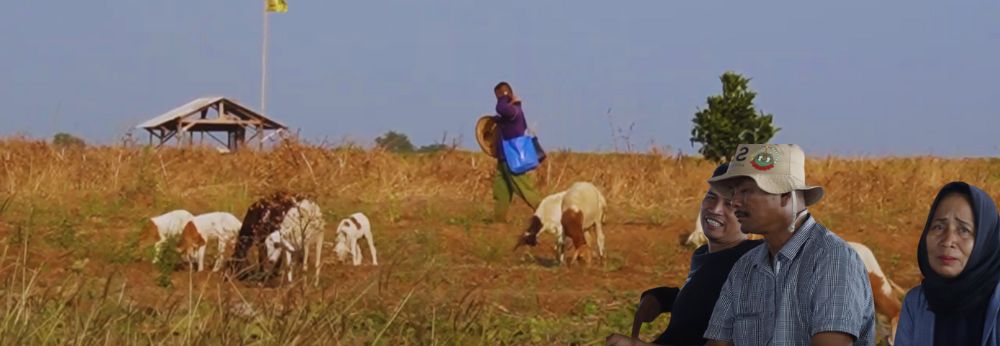A new documentary by Serikat Petani Indonesia, in collaboration with its allies, delves into the protracted battle for land in Tukdana, Indramayu, Indonesia. Originally designated as forested terrain, the area was reclassified as cultivable land in 1976 through a land exchange program rolled out by the Ministry of Agriculture.
However, in 1979, the state-owned sugar company PG Rajawali II earmarked the land for sugarcane plantations, igniting a prolonged dispute between peasant families and the corporation. Some were forcefully evicted, others reluctantly entered partnerships with the sugar company, while a resilient few refused to yield, continuing to cultivate food crops on the contested land. Those who resisted organized under the peasant union, Serikat Petani Indonesia (SPI).
Damar, chairperson of the local branch of the peasant union, reflects on the disillusionment of those who became partners with the sugar company, stating, “Some of the peasants who joined the Sugar company as ‘partners’ soon realized that they were only producing for the company, and that the partnership was only detrimental to them.”
Absori, a landless peasant, emphasizes the enduring practice of cultivating the state-owned land to sustain their families with rice and vegetables, saying, “I have no land, but this is State-owned land – and we have been cultivating here for long.”
In 2018, the company intensified its efforts to enlist more peasants as partners, aiming to divide the unified front of peasants. This tactic resulted in increased hostilities and sowed divisions among the peasants. According to the SPI, peasants who cultivated their own land were subjected to attacks, crop destruction, and intensified harassment in the last two years.
Peasants allege that the company seeks to monopolize land solely for sugarcane cultivation, coercing individuals with monetary incentives to convert land for this purpose.
Sulaiman, a peasant member of SPI recalls, “I was called to the Mayor’s place and asked to identify land for Sugarcane. I was offered 20 million Rupiah if I could get 1 hectare for them.”
Recognizing the detrimental effects of these partnerships, many farmers seek to return to traditional rice cultivation and turn to Serikat Petani Indonesia (SPI) for support. Fearful of losing their land to debt recovery, these peasant families unite against bureaucratic and corporate pressure.
SPI plays a crucial role in educating peasants on their rights, cultivation techniques, and the principles of food sovereignty and agrarian reform.
Utomo, a peasant leader says, “We learn about food sovereignty and agrarian reform here. Today 630 members in the area cultivate around 430 hectares – mostly rice, fruits and vegetables.”
Despite the company’s failure to fulfill the land exchange plan, peasants continue to occupy and cultivate the land, advocating for its return as part of the government’s agrarian reform program.
For a deeper understanding of this ongoing struggle, watch this film by Serikat Petani Indonesia, supported by the International Planning Committee on Food Sovereignty (IPC), FIAN International, and other organizations.

